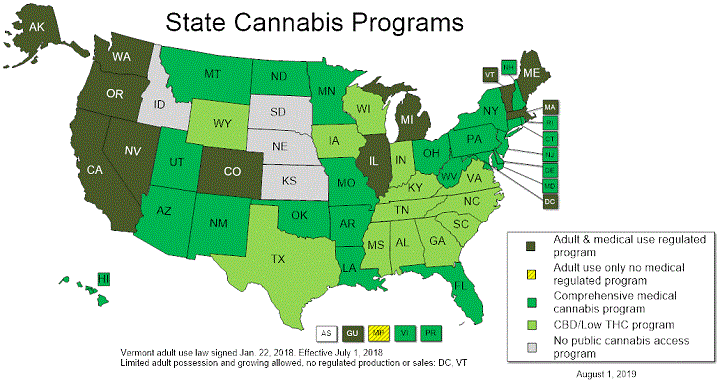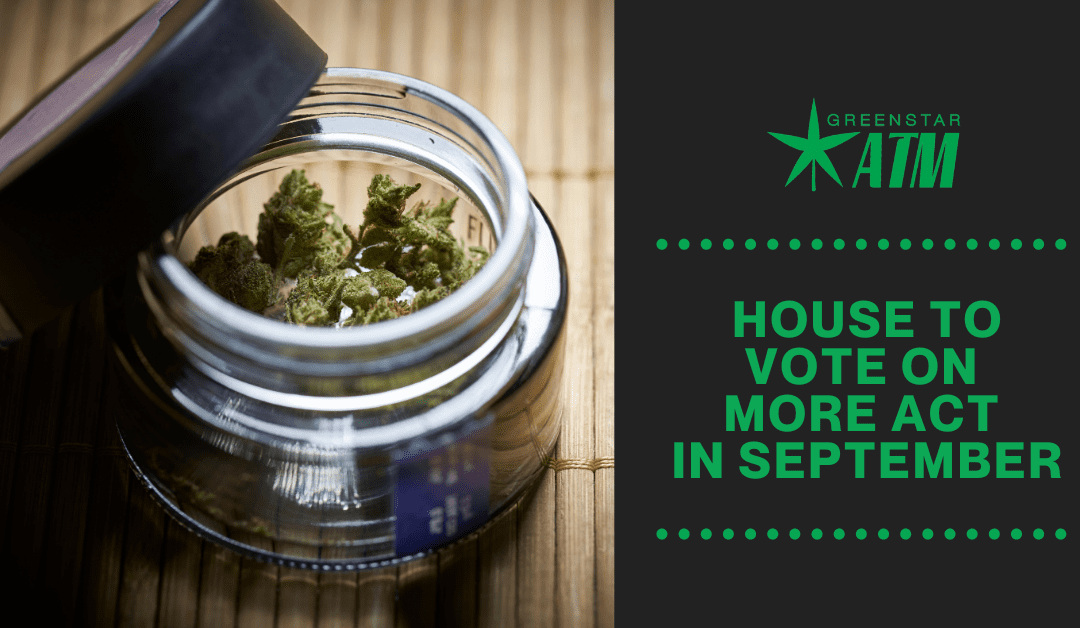Since the passage of the Controlled Substances Act of 1970, marijuana has been classified as a Schedule 1 narcotic at the federal level. However, that may change this September when the House is set to vote on the Marijuana Opportunity Reinvestment and Expungement (MORE) Act.
The MORE Act was introduced into the House by Rep. Jerrold Nadler (D-NY) in July 2019. A companion bill was introduced into the Senate by Sen. Kamala Harris (D-CA). The MORE Act would declassify cannabis as a Schedule 1 drug, removing it from the Controlled Substances Act.
According to the Act’s webpage, “The bill also makes other changes, including the following:
- replaces statutory references to marijuana and marihuana with cannabis,
- requires the Bureau of Labor Statistics to regularly publish demographic data on cannabis business owners and employees,
- establishes a trust fund to support various programs and services for individuals and businesses in communities impacted by the war on drugs,
- imposes a 5% tax on cannabis products and requires revenues to be deposited into the trust fund,
- makes Small Business Administration loans and services available to entities that are cannabis-related legitimate businesses or service providers,
- prohibits the denial of federal public benefits to a person on the basis of certain cannabis-related conduct or convictions,
- prohibits the denial of benefits and protections under immigration laws on the basis of a cannabis-related event (e.g., conduct or a conviction), and
- establishes a process to expunge convictions and conduct sentencing review hearings related to federal cannabis offenses.”
Cannabis in America
Since the Controlled Substances Act passed in 1970, attitudes toward cannabis have changed dramatically. As of August 2020, 11 U.S. states and the District of Columbia have legalized marijuana for both recreational and medicinal use. Additionally, New Jersey, Montana, Arizona, South Dakota, and Pennsylvania all will have recreational marijuana questions on their 2020 ballots.

As for medical marijuana, 33 U.S. states, the District of Columbia and the U.S. territories of Guam, Puerto Rico and the U.S. Virgin Islands all have legal medical marijuana programs.
The tide is clearly turning when it comes to attitudes regarding marijuana usage in America. What remains to be seen is if Congress will follow suit. The MORE Act may finally be the beginning of a new day in marijuana legislation in America.






